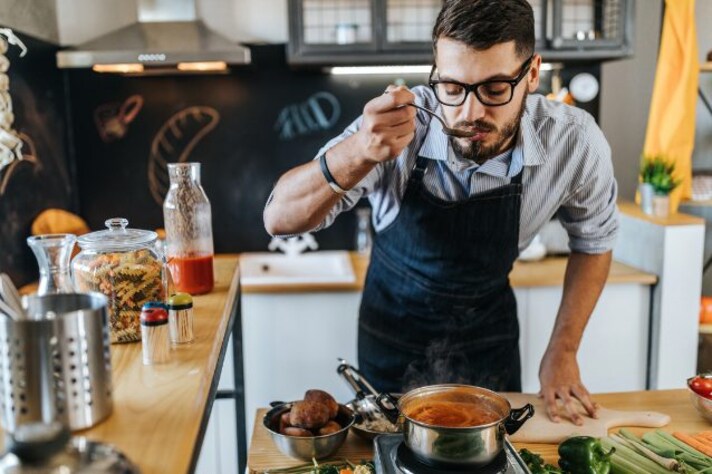Why You Should Never Forget to Taste Your Dishes as You Cook
Never forget to taste your dishes while cooking—it's the key to great food. Tasting ensures flavors are balanced, ingredients are adjusted to their unique qualities, and you avoid over- or under-seasoning. Catch mistakes early and make sure the final dish reflects your personal taste.

Ah, the thrill of cooking—the sizzle of the pan, the wafting aromas, the excitement of seeing a dish come together. But in the whirlwind of chopping, sautéing, and seasoning, there’s one golden rule that can make or break your meal: always taste as you go. Whether you’re preparing a weeknight dinner or something more elaborate, not tasting your own cooking is a mistake you don’t want to make. Here’s why.
Balance Is Everything
Cooking is an art, but it’s also a delicate science of balance. Too much salt, too little acid, a lack of sweetness—these small missteps can turn a perfectly good dish into a disaster. Taste as you go to make sure your flavors are harmonious. That sprinkle of salt may have seemed like enough, but only a quick taste will tell you if the dish needs more. After all, you’re not a robot following a recipe—you’re a cook bringing flavors to life.
Ingredients Aren’t Always Consistent
Here’s the thing about ingredients: they have personalities, and they’re not always predictable. Some tomatoes are sweet, others are more acidic. A batch of garlic might be super pungent or mild as a summer breeze. Recipes can only do so much to account for these variables, which is why tasting your dish is essential. You’re the only one who can adjust to the uniqueness of your ingredients, ensuring every bite is spot-on.

Let’s face it: recipes are helpful, but they’re not set in stone. Even the best ones can lead you astray if you follow them too rigidly. Taste-testing as you cook lets you adjust for seasoning, texture, and consistency in real time. That curry might need an extra splash of coconut milk, or your pasta sauce might require a pinch of sugar to balance out the acidity. If you’re not tasting, how will you know?
Seasoning is a fine line to walk—too little, and the dish is bland; too much, and you’ll overwhelm your palate. Tasting along the way ensures you’re not overcompensating with salt, pepper, or spices. It’s always easier to add more seasoning than to take it away. A quick taste prevents that moment of panic when you realize you’ve gone too far and your dish is beyond saving.
You Can Catch Mistakes Early
Tasting as you cook isn’t just about seasoning—it’s also about catching potential disasters before they happen. Is the sauce thickening too much? Did you accidentally add too much chili powder? Is your soup too acidic? Catching these issues early can save your dish from going off the rails. Think of tasting as your culinary safety net, making sure no unpleasant surprises hit the table.

At the end of the day, you’re the one serving this meal. Your taste preferences should shine through in every bite. If you like a bit more heat in your dishes, adjust accordingly. Prefer your food on the less salty side? Taste and adapt. Cooking without tasting is like painting without looking at the canvas—there’s no guarantee the final product will be what you envisioned.
How to Taste Like a Pro
Tasting isn’t just about grabbing a spoon and giving it a try. You want to taste thoughtfully—pay attention to texture, seasoning, and how the flavors are developing. Don’t be afraid to adjust as needed, even if it means veering slightly off-recipe. Just remember: a dish evolves as it cooks, so tasting along the way ensures the final version is just right.
;Resize,width=767;)

;Resize,width=712;)

